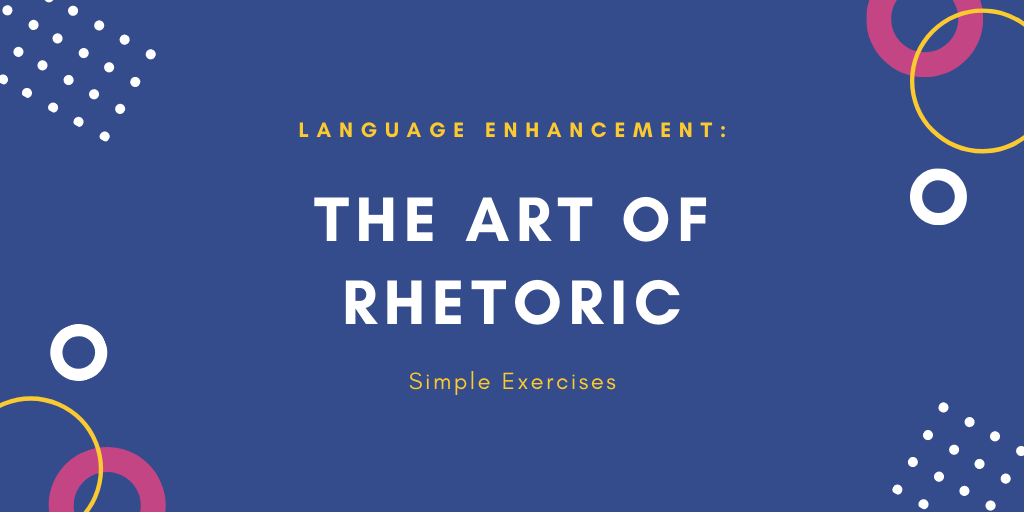In today’s post, I would love to talk about rhetoric – the art of persuasion and the ability to use the language effectively. I want to include it in my series of blog posts because rhetoric is an important concept for language learners. Training, as well as effective use of speech, can significantly improve not only your foreign language but also your native tongue.
I was not always interested in the art of persuasion and effective use of language. However, when I started to devote my time to the foreign tongues, I also began to realise, that my native one started to worsen. In the beginning, I rarely struggled with speaking, just sometimes forgot a word or two. However, with time, my ability to express myself in the native tongue began to decline – I started to forget even the simplest of words and rare sentence of mine was without the inclusion of foreign words and terms.
I have always been an excellent commander of my native language, therefore, these developments of my speech terrified me. This is how I got into rhetoric – by realising, that I need to actively practice and do exercises to keep up the levels of my native speech.
Today, I would love to share these exercises with you. We will not go into the depth of persuasion, just talk about the most basic activities. These will help you to maintain the levels of your active native vocabulary and aid in making your speech a bit more coherent (in case you, as a fellow polyglot, struggle with the same problems).
The first exercise is “The Alphabet”. First, you choose a general topic, such as “town” or “circus”. Afterwards, you try to remember at least one (preferably, at least three) word per each letter of the alphabet which could describe the chosen topic – for example, “acrobatic” for “circus”, or “overcrowded” for “town”. Although it does seem to be ridiculously easy, this exercise is excellent for diversifying your active vocabulary and reducing the words’ recall time.
The second activity I particularly love is “The Train of Thought”. It helps you to speak actively, plan your speech and fit your thoughts into small concise paragraphs. First, you choose the topic you are going to talk about – for example, your favourite book. Now, the idea is to fit a summary or explanation into 10 “wagons” – 10 sentences – to build one “train”. The sentences in this exercise have to connect to each other the same way the wagons in the train connect – the last word of the previous sentence should become the beginning of the next one. For example: “I love criminal stories, one of my favourites is the Sherlock Holmes series. The series includes many stories about the famous detective and his companion. The companion, Doctor Watson, helps the protagonist to solve crimes and achieve his goals…”. Continue until you get 10 sentences for your small text.
The last exercise I want to tell you about is very simple but widely used in public performances. It helps you to build a strong and convincing logical structure for your monologue. First, start with a message, or your main idea. Continue with 3-4 arguments supporting the introduction thesis. In the end, summarise and repeat the main information in other words. For example: “Our product is the best one on the market. It is made out of the high-quality materials, uses the latest software and has the highest cost-benefit ratio. That is why our device has no replacement and is the option for your company”.
In case you would love to know more about the art of persuasion, I highly recommend the book “Schwarze Rhetorik: Macht und Magie der Sprache” by Karsten Bredemeier. Originally, it is written in German but it is also available in many other languages.
I hope these exercises help you to improve the quality of your speech. In the next post, I will tell you more about activities which could aid you on the way to the multilingual proficiency.
Now, could you tell me which exercise did you like the most? Do you use the principles of rhetoric in your daily life? Please, let me know in the comments below.




I ve never heard about the book “Schwarze Rhetorik: Macht und Magie der Sprache”. Thank you for the recommendation!
Thank you, Sabina! So many useful tips ??
Great post!! Thanks for sharing the insights!
Great post! Thanks for sharing the insights!